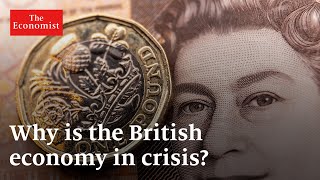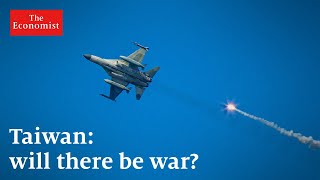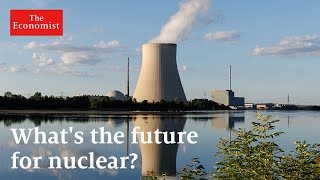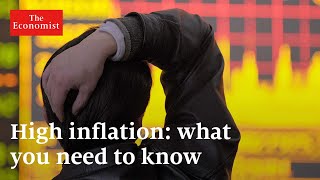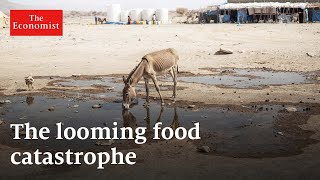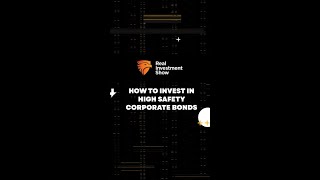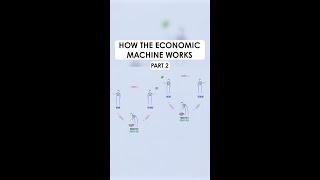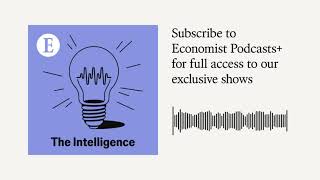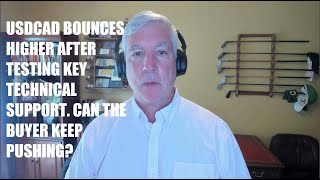Category Archive: 5.) The Economist
Why did the chicken…get so big? #facts #food #shorts
Full video:
People eat 65 billion chickens every year. It is the fastest-growing meat product. Yet pound for pound the price of chicken has fallen sharply. How has this happened?
#facts #food #shorts
Read More »
Read More »
Brazil’s elections: The Economist interviews Lula
Luiz Inácio Lula da Silva, commonly known as Lula, is the former leftist president of Brazil and the man taking on Jair Bolsonaro, the right-wing incumbent, in the country’s upcoming presidential election. In an exclusive interview with The Economist, Lula discusses his campaign and his plans for Brazil.
00:00 - The man taking on Bolsonaro
00:55 - Violence during the election
02:50 - Lula’s plans to pacify Bolsonaristas
03:46 - Lula on corruption...
Read More »
Read More »
UK economy: is there worse to come?
The British pound has tanked, markets are in crisis and economists worldwide are panicking. What’s happening to the British economy?
00:00 - Britain’s economy is in crisis
00:58 - What happened?
01:31 - What does this mean?
01:51 - How do they fix it?
To read more about Britain's economic crisis: https://econ.st/3Rh3o7m
For our most recent coverage on Britain’s economy: https://econ.st/3UMZCFG
Sign up to The Economist’s daily newsletter:...
Read More »
Read More »
Who Is Xi Jinping?
This year Xi Jinping is expected to begin a historic third term as president, cementing his status as China’s strongest leader since Mao. The future of China's 1.4 billion people—and perhaps world peace—now depend to a large extent on the mind of one man. So who is President Xi, and what is his vision for China and its place in the world?
00:00 - Who is Xi Jinping?
01:56 - The “princelings”
03:08 - Purge of the CCP
05:33 - Life in Liangjiahe
09:06...
Read More »
Read More »
War in Ukraine: Putin’s speech analysed
On September 21st Vladimir Putin announced the partial mobilisation of 300,000 Russian reservists to strengthen his forces in Ukraine and warned he would use all weapons at his disposal—chillingly warning, "this is not a bluff". Our experts discuss how far he’s willing to go.
Read More »
Read More »
Why hate is fuelling politics
Hate is fuelling politics in America and Britain, as arguments over racial justice, transgender rights and other issues become more polarised. These tribal "culture wars” spell bad news for democracy. Film supported by @Mishcon de Reya LLP
00:00 - Are we becoming more divided?
01:16 - Critical race theory
06:48 - What are culture wars?
11:32 - Transgender rights
17:14 - The effects of social media
19:42 - Policing vs democracy
23:46 - The...
Read More »
Read More »
What is the future of the British monarchy?
In today’s world the idea of the monarchy is outdated, but it thrived under Queen Elizabeth II. The Economist’s Editor-in chief, Zanny Minton Beddoes, and Britain correspondent, Catherine Nixey, discuss what the Queen’s death means for the future of the crown.
00:00 - How has Britain reacted to her death?
02:36 - The impact of her death worldwide
03:48 - What is the future of the British monarchy?
04:45 - The new king will face challenges
Find...
Read More »
Read More »
Why America’s murder rate has spiked
In 2020 the murder rate in the US rose by nearly 30%—the country’s largest-ever recorded annual increase. It has not fallen significantly since. What is it about America that led to this jump, and what can be done to reduce the violence?
00:00 - America’s murder rate soared in 2020
01:15 - How violence interrupters work to reduce shootings
02:51 - Will the high murder rate become the new normal?
04:26 - What leads to violent crime?
05:28 - Did...
Read More »
Read More »
Is the war in Ukraine nearing its end?
Ukraine’s surprise counter-attack has inflicted a huge defeat on Vladimir Putin’s forces. Has the tide turned in the war? Our correspondents discuss the latest developments, what they might mean for Putin’s grip on power in Russia and whether a Ukrainian victory is possible.
00:00 - How effective has the Ukrainian counter-offensive been?
02:01 - How have Western-supplied weapons helped Ukraine?
03:20 - How has the Kremlin reacted?
06:20 - Is a...
Read More »
Read More »
What to expect from King Charles III
King Charles III has very large shoes to fill. How will he change the British royal family?
00:00 - Britain has a new king
01:08 - The English constitution
01:57 - The importance of religion
03:56 - Charles has big shoes to fill
06:09 - Slimming down the monarchy
07:21 - Will Charles be a meddling king?
08:44 - Could there be a constitutional crisis?
10:35 - The future of the British monarchy
What will Charles do now? https://econ.st/3RLTCdS...
Read More »
Read More »
Queen Elizabeth II: her reign in numbers
Queen Elizabeth II has died. Her 70-year reign was the longest of any British monarch—and spanned a period in which the world has radically changed. This is the story of her remarkable reign in numbers.
00:00 - Queen Elizabeth II: her reign in numbers
01:20 - How Britain transformed
03:00 - How many hours has the Queen worked?
04:14 - The Queen and the Commonwealth
04:45 - Number of countries the Queen has visited
05:58 - The Queen, Popes and US...
Read More »
Read More »
Will Trump be president again?
Despite losing in 2020, Donald Trump has managed to strengthen his grip on the Republican Party. Will he run again for president—and if so, could he win?
Read More »
Read More »
The Saudi prince: how dangerous is MBS?
Muhammad bin Salman, or MBS—the millennial crown prince of Saudi Arabia—appears increasingly invincible. With the war in Ukraine disrupting energy supplies, Western leaders are eager to get their hands on his oil. But should they worry about the young prince’s power?
00:00 - How dangerous is MBS
01:06 - How MBS has reformed Saudi Arabia
02:59 - Who is MBS?
03:36 - MBS’ rise to power
06:21 - Khalid Al-Jabri on MBS’ brutal regime
08:14 - The murder...
Read More »
Read More »
Taiwan: will there be war?
The uneasy status-quo between China and Taiwan, which has existed for seven decades, is looking more fragile than ever. Is war inevitable?
00:00 - Threat to Taiwan’s peace
00:38 - Are we closer to war?
01:47 - China’s growing power
03:01 - Taiwan’s allies
03:45 - Taiwanese public opinion
04:45 - Rising threat of war
Read more about preventing a war in Taiwan: https://econ.st/3zX43UX
Sign up to The Economist’s daily newsletter:...
Read More »
Read More »
Nuclear power: the clean, green energy dream?
One of the keys to a smooth transition to a green economy is nuclear power. It's a proven alternative to fossil fuels—but the most important barriers to its adoption may not be what you think.
00:00 - The role of nuclear power
00:48 - The advantages of nuclear energy
01:41 - The problem with nuclear power
02:51 - Nuclear waste
03:58 - Storage options for nuclear waste
Read more about nuclear power’s newest appeal: https://econ.st/3SyNAP4
Sign...
Read More »
Read More »
High inflation: what you need to know
In many countries, inflation is at its highest level since the early 1980s, and consumers are feeling the pinch. What can be done to bring it under control?
00:00 - Global inflation is rising again
00:24 - What is inflation?
00:51 - Why is high inflation a concern?
01:40 - How to control inflation
03:00 - How monetary policy can tame inflation
Sign up to our daily newsletter for the latest coverage: https://econ.st/3JrA0c5
Read more on our...
Read More »
Read More »
How are offices changing? | The Economist
The pandemic and hybrid working have changed the very idea of the office. This is not only changing the design and purpose of offices, but the look of cities too.
Chapters
00:00 - The office: a shifting concept
00:57 - What do future offices look like?
02:30 - The office as a social destination
03:20 - The rising demand for flexible work
04:06 - How should hybrid employees be managed?
06:01 - Will hybrid work worsen gender inequality?
06:36 -...
Read More »
Read More »
The global food crisis, explained
The war in Ukraine threatens the world with unprecedented hunger. Even with a deal in place to get Ukraine's food exports moving, serious weaknesses in the global food system would remain. Can anything be done to prevent future crises?
Read More »
Read More »
Black holes: why they matter
NASA’s James Webb Telescope has captured this stunning image of stars around a black hole. Yet black holes remain among the biggest mysteries of the universe. What are they and why are they so important?
Read More »
Read More »
Boris Johnson resigns: what happens next?
After weeks of clinging on, Boris Johnson has agreed to resign as British prime minister. What happens now, and what challenges will his successor face?
00:00 - Boris Johnson’s resignation
00:29 - Will the Tory party persist with populism?
01:14 - Britain’s economy
02:21 - War in Ukraine
03:09 - Brexit
04:00 - Britain’s reputation
Why Boris Johnson should go immediately: https://econ.st/3ykyjby
The toxicity of Boris Johnson and how it...
Read More »
Read More »











